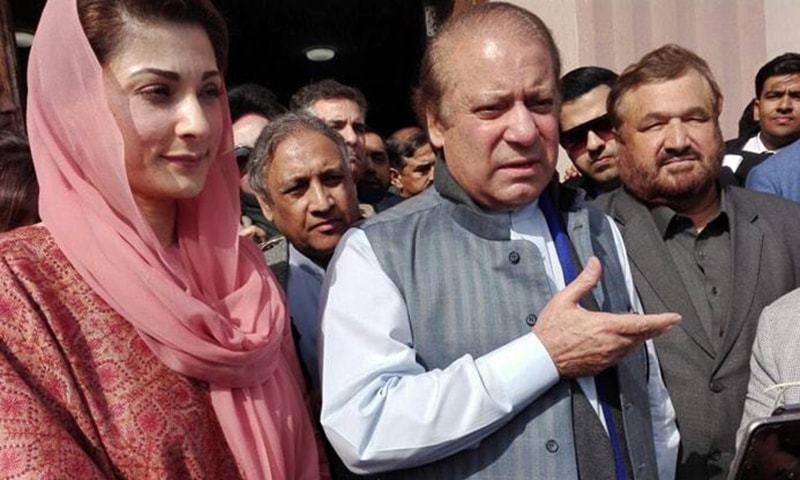News Analysis |
On Thursday, a two-member bench of the Islamabad High Court (IHC) reserved the judgment on the petition filed by the National Accountability Bureau (NAB) seeking the dismissal of bail granted to Captain (retd) Muhammad Safdar in the Avenfield properties case.
The divisional bench which heard the plea, included justice Aamir Farooq and Justice Mohsin Akhtar Kayani. Safdar appeared in the court at 11 am yesterday to face the case hearing regarding the corruption charges against him and his disqualified father-in-law Nawaz Sharif.
Though NAB is now seeking his arrest, the question arises that why did NAB pursue this case apparently after being under pressure from media, political parties, and negative public sentiments?
The prosecutor of NAB Sardar Muzaffar Abbasi presented his arguments against the accountability court’s orders granting bail to Safdar. The defense counsel Amjad Pervez represented the legislator and attempted to defend his client against the plea.
Sardar Muzaffar Abbasi pleaded that the court should not have rejected their request to send him to Rawalpindi’s Adiala Jail. The NAB prosecutor made arguments to cancel the bail orders because the Accountability Court did not have the authority to grant bail to the accused.
Read more: NAB raids NTS as controversy grows
On November 3rd, NAB had challenged the bail orders of the accountability court in IHC. On October 2nd, after multiple non-appearances in the court, the trial court had issued non-bailable warrants for the arrest of Safdar.
Safdar was allowed to walk free after NAB took him into custody at the Benazir Bhutto International Airport in Islamabad upon arrival in Pakistan from London on October 9th. He was granted bail after furnishing surety bonds worth Rs. 5 million. On the contrary, in yesterday’s proceedings, the defense pointed out that the judgment of the Accountability court referred to section 91 of the criminal procedure code that allows the accused to execute bonds.
On November 3rd, NAB under pressure for these alleged double standards approached the IHC and requested to quash the orders of the Accountability Court as it was illegal and non-applicable because it lacked the authority.
NAB has been under relentless pressure and was accused of showing the double standards when dealing with the Sharif family and other accused on corruption charges.
Sharjeel Inam Memon, another accused in mega-corruption charges was arrested immediately after arriving in Islamabad despite having the pre-arrest bails in two cases and was subsequently put on the Exit Control List (ECL), but NAB officials were barred from the airport when Safdar arrived.
Read more: PTI to NAB Chief: ‘Act before we do’
On November 3rd, NAB under pressure for these alleged double standards approached the IHC and requested to quash the orders of the Accountability Court as it was illegal and non-applicable because it lacked the authority to set Safdar free despite the fact that officers were directed to seek non-bailable warrants for the accused.
Despite these antics of being hard done by the Accountability Court, IHC while discussing the case made remarks that NAB must have worked its way to create a scenario to put the accused behind bars since being an investigative agency, it has the power to arrest any individual at any stage of the proceedings. Moreover, if NAB wanted the custody of any accused, it can ask the chairman of NAB to issue the order.
On November 3rd, NAB had challenged the bail orders of the accountability court in IHC. On October 2nd, after multiple non-appearances in the court, the trial court had issued non-bailable warrants for the arrest of Safdar.
Justice Kayani showed discontent with defense counsel Pervez’s remarks that pre-bail is required to attend the court proceedings. The judge rebutted that bail is not the requirement if one has to appear before the court to face trial.
Read more: Nawaz’s short & sweet appearances in NAB; where is the supremacy…
Though NAB is now seeking his arrest, the question arises that why did NAB pursue this case apparently after being under pressure from media, political parties, and negative public sentiments? Why did NAB have to wait for approximately three-weeks to go IHC seeking cancellation of bail against Safdar? Why only after the accusation of Sharjeel Memon, NAB started these proceedings and if NAB was serious about his arrest, why did the NAB chairman fail to make a move despite possessing the authority to do so?














